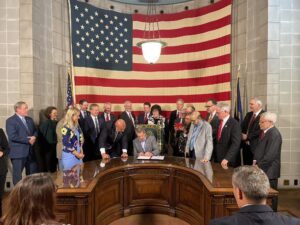College savings plans could be applied to certifications, workforce training in VA
(The Center Square) – Virginia Reps. Abigail Spanberger and Rob Wittman are leading a bipartisan effort to diversify how college savings accounts can be used.
The Freedom to Invest in…

(The Center Square) – Virginia Reps. Abigail Spanberger and Rob Wittman are leading a bipartisan effort to diversify how college savings accounts can be used.
The Freedom to Invest in Tomorrow’s Workforce Act would increase the number of eligible expenses for 529 savings accounts. Like Roth IRAs, 529 plans are investment accounts allowing individuals to use their after-tax contributions to pay for educational expenses. The earnings from the plans generally aren’t subject to federal or state income tax when used for qualified expenses.
The bill would allow eligible expenses to include not just K-12, higher education and select vocational schools but certification and workforce training programs.
The bill was born out of a desire to support the needs and interests of a developing workforce and those of an always-evolving, diverse economy. As such, it has received support from organizations like the American Trucking Association, the Professional Certification Coalition and the American Institute of CPAs.
“If we are truly going to build and invest in a 21st-century workforce, we must ensure that financial resources are aligned with the most essential and in-demand jobs,” said ATA President Chris Spear.
Young people pursuing certifications or credentials for certified nursing assistant, IT or welding programs currently cannot use 529 accounts to pay for those costs.
“In a moment when middle-skill jobs are more available, we can’t afford to leave behind Virginia’s workers – simply because they lack adequate training,” Spanberger said.
Expanding the uses of 529 accounts would help recent high school graduates and those looking to make a career change.
“This legislation broadens access to 529 savings plans, changing the paradigm from ‘college savings plans’ to ‘career savings plans,” said Craig Saperstein, public policy counsel for the Professional Certification Coalition.



